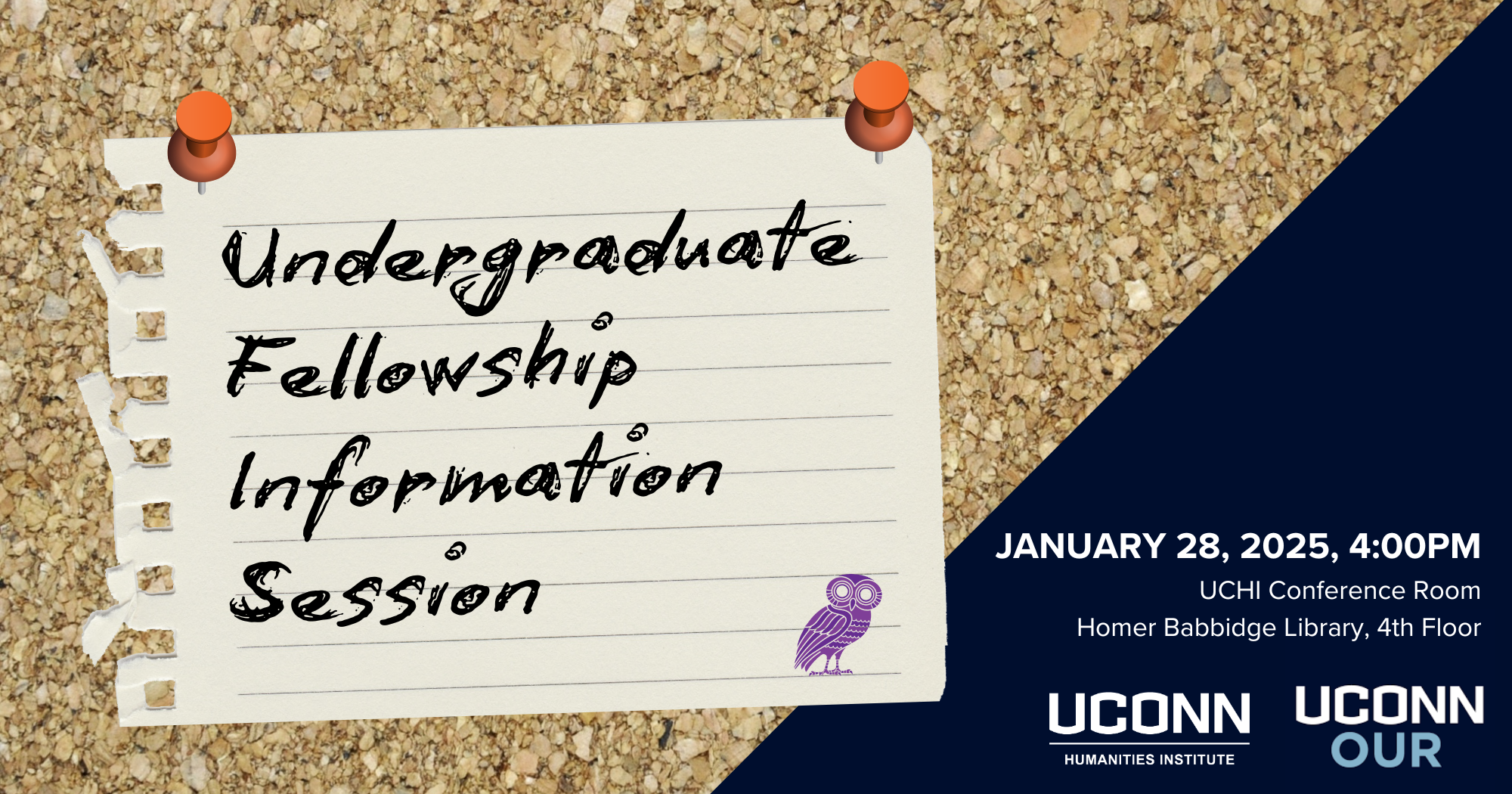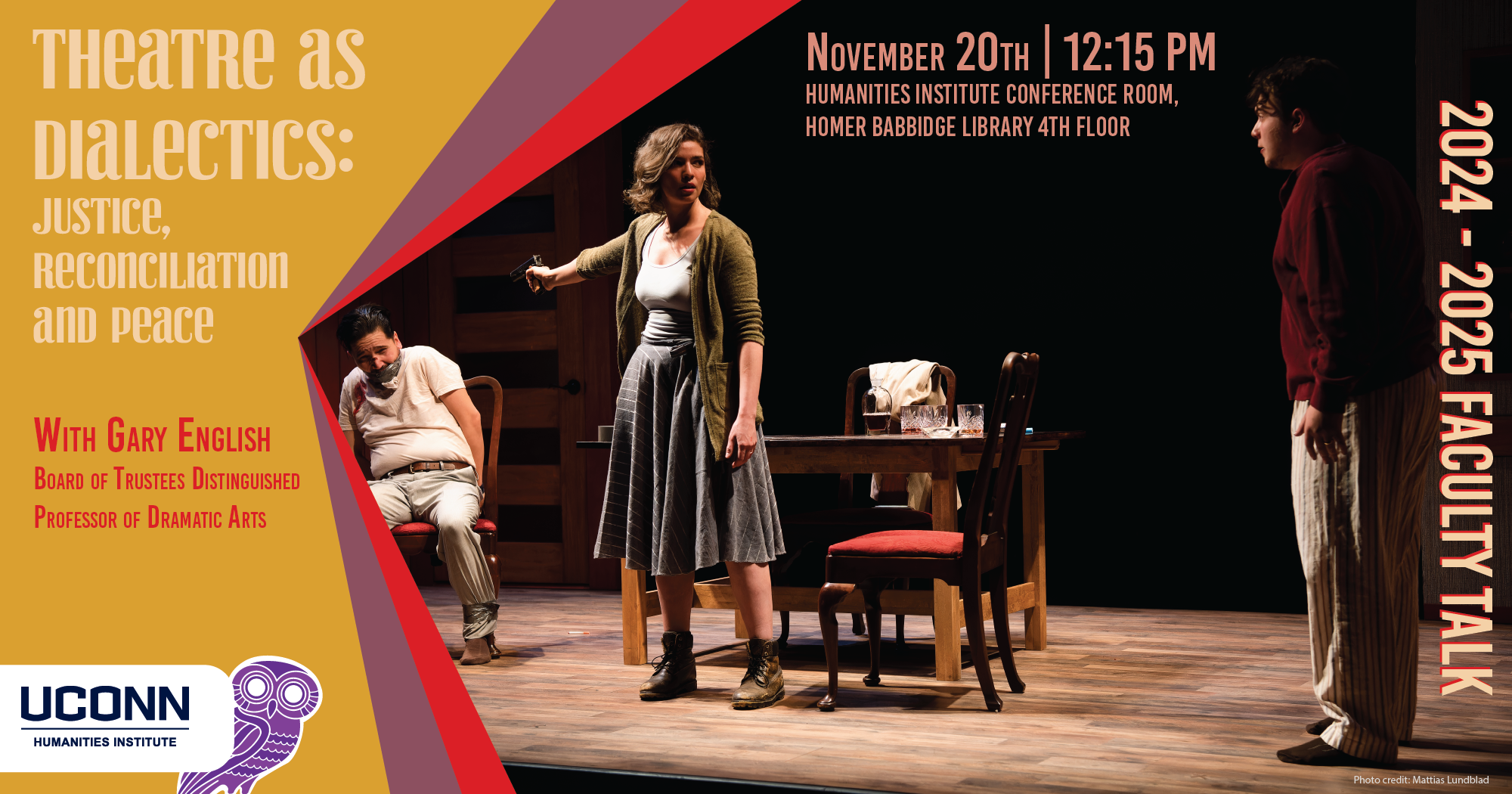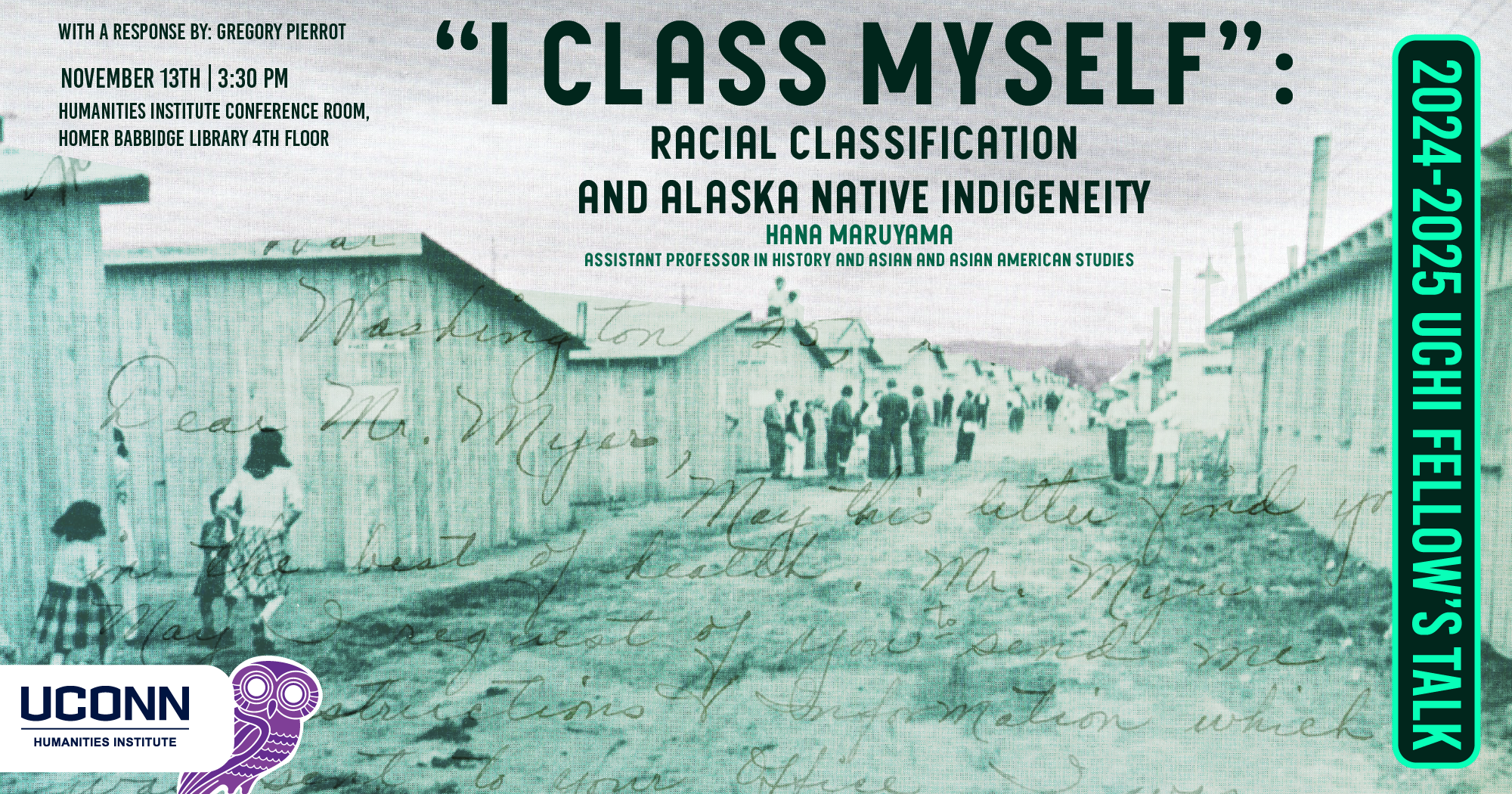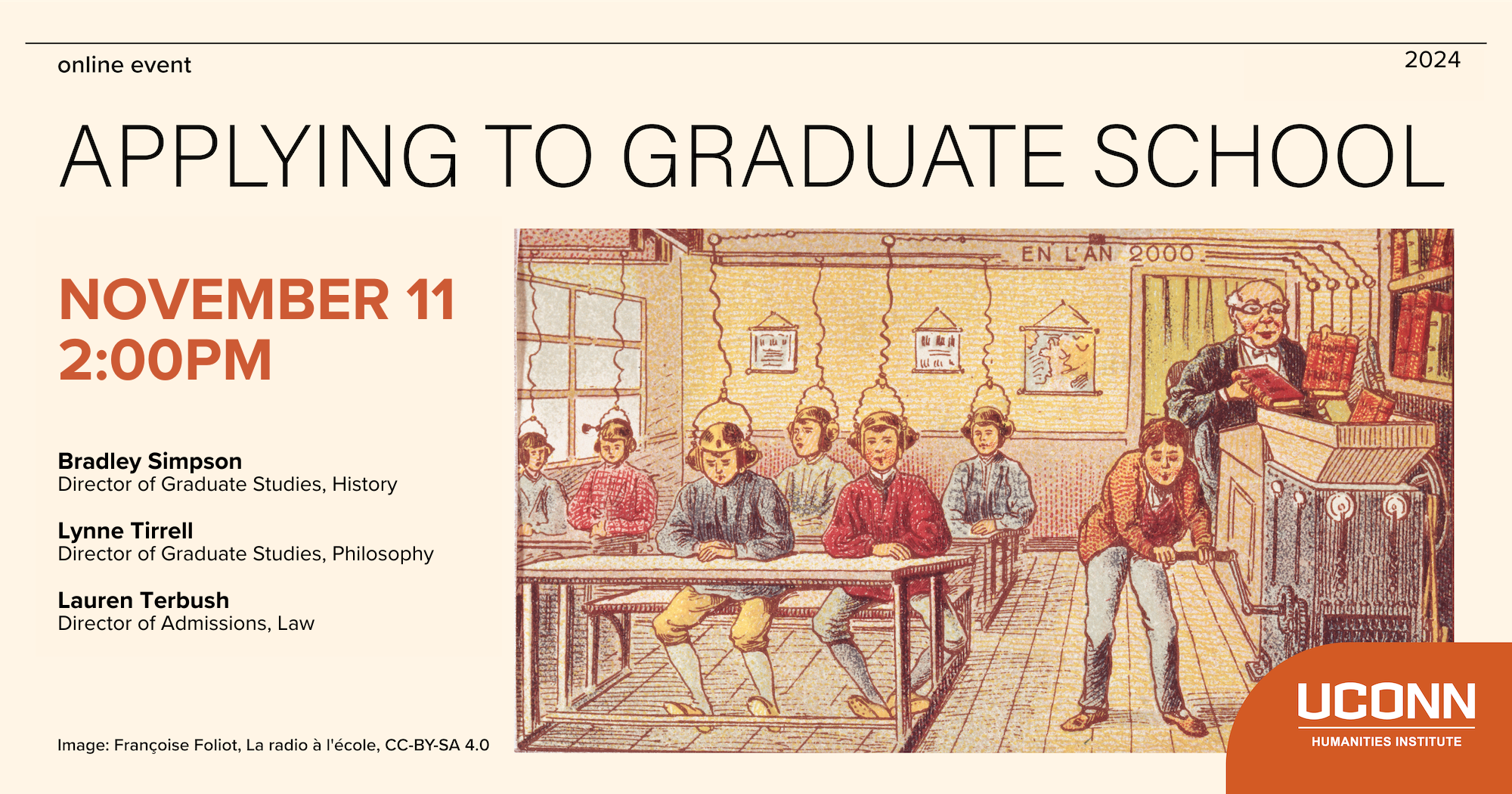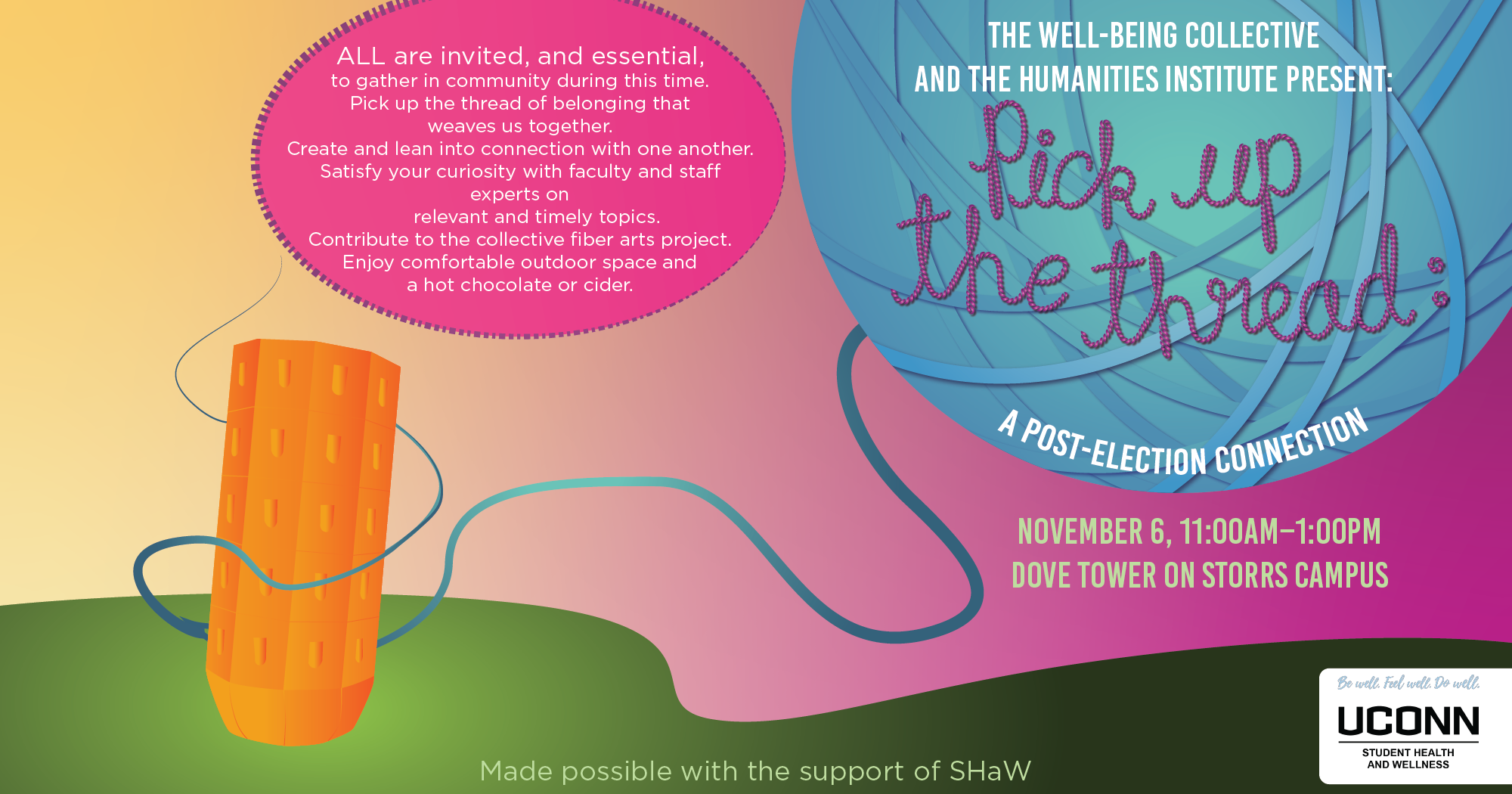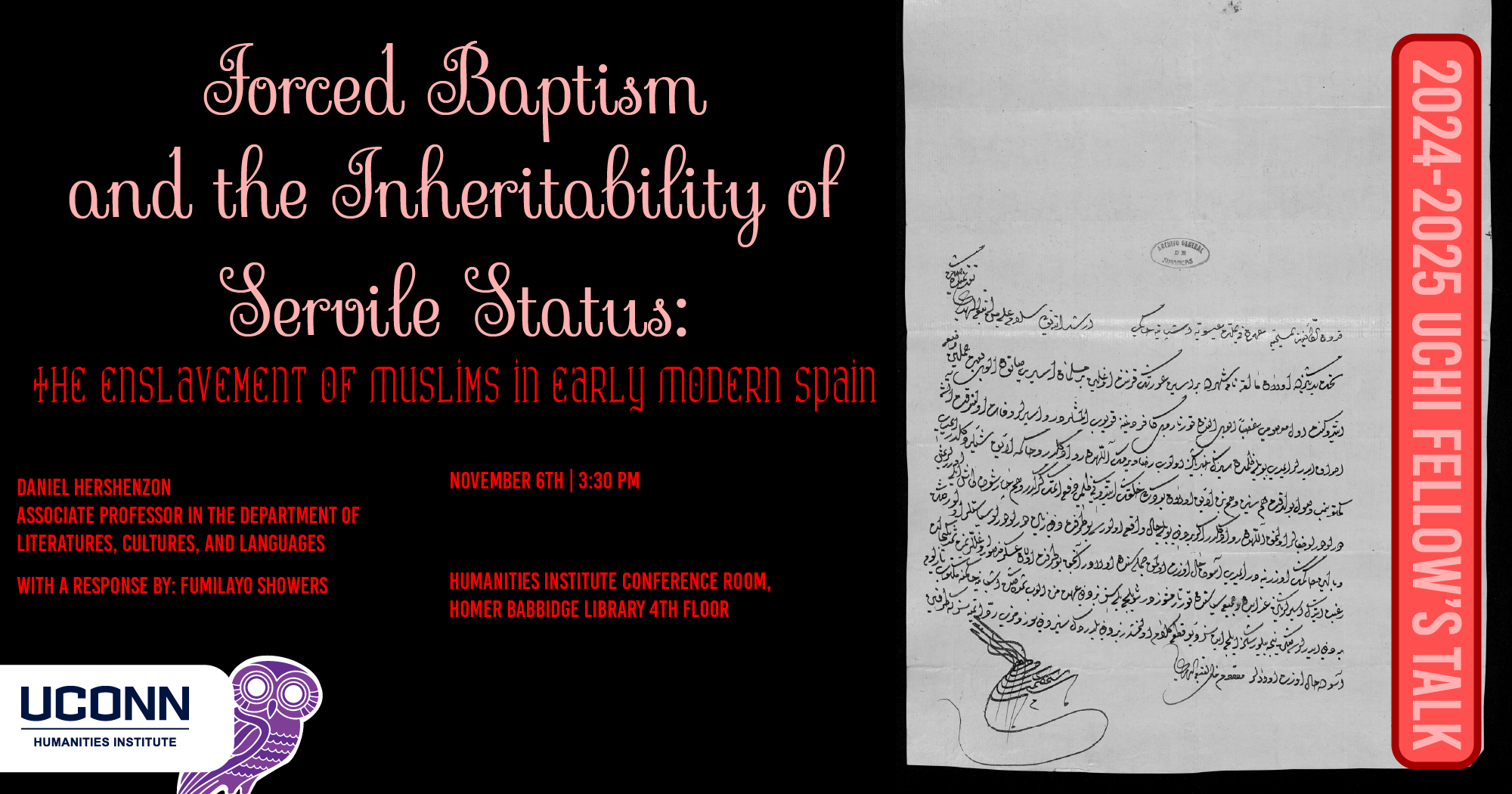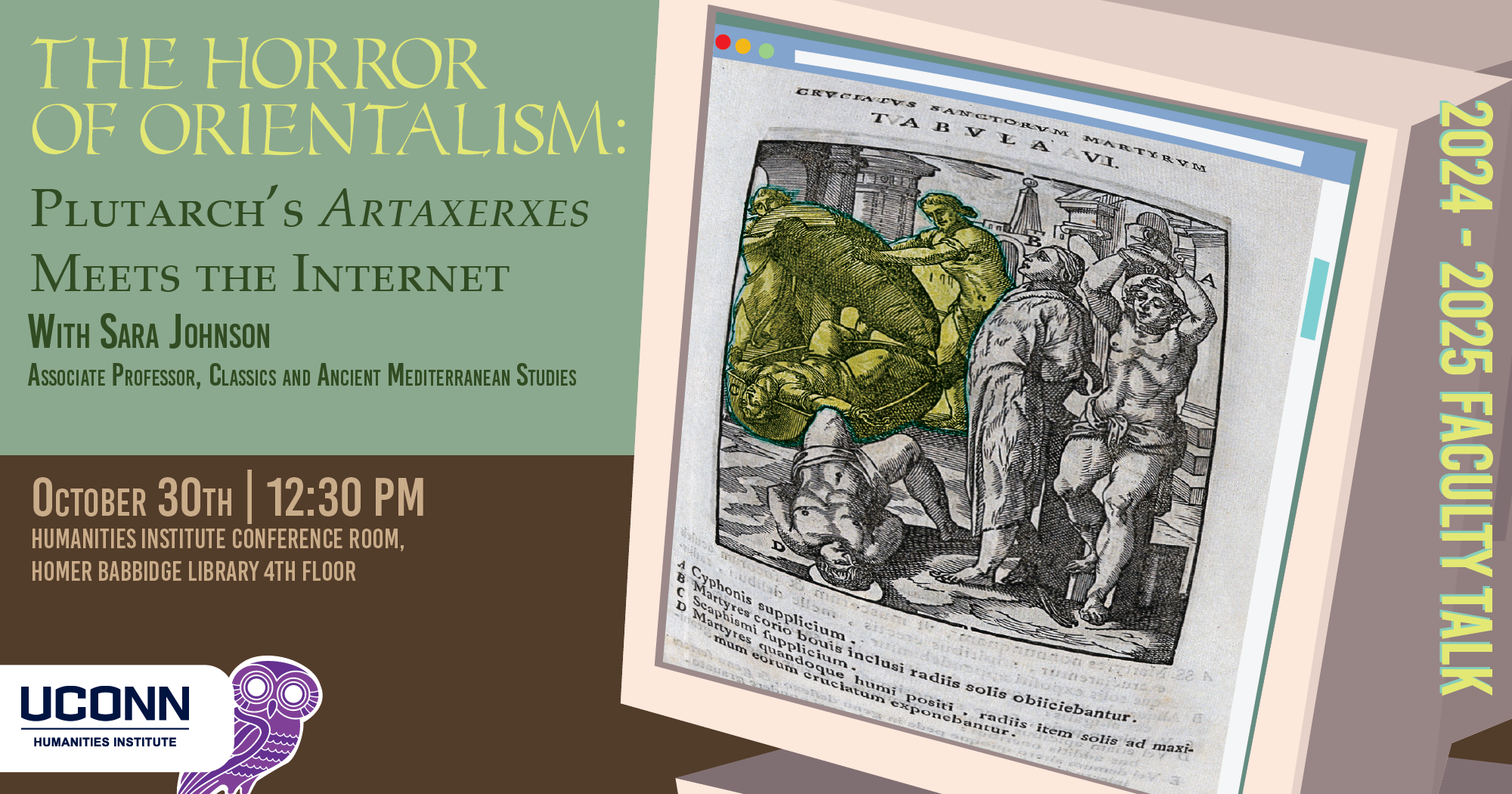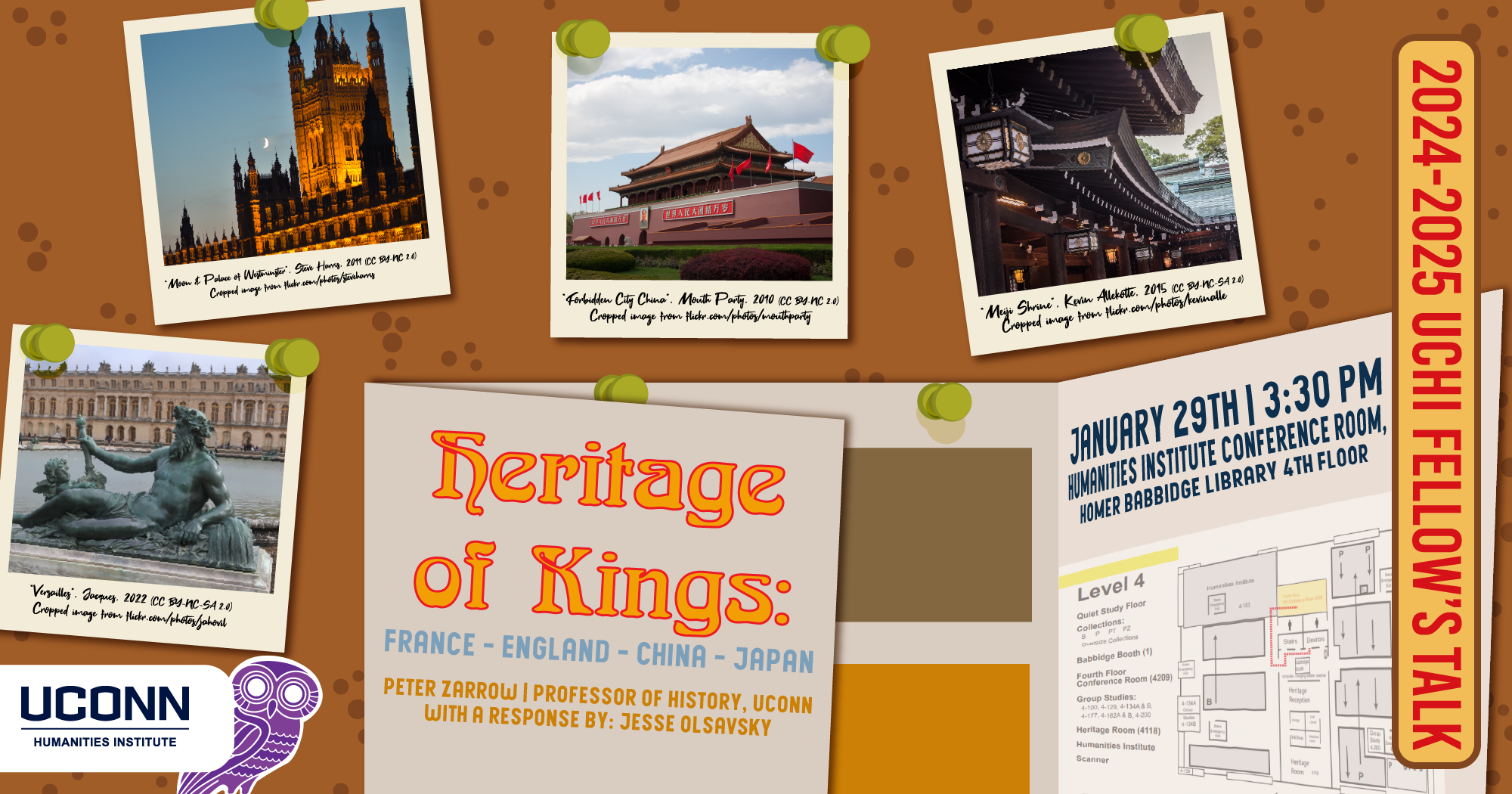
Heritage of Kings: France–England–China–Japan
Peter Zarrow (Professor, History, UConn)
with a response by Jesse Olsavsky (History & Gender Studies, Duke Kunshan University)
Wednesday January 29, 2025, 3:30pm, Humanities Institute Conference Room (HBL 4-209)
The event will also be livestreamed with automated captioning.
My talk “Heritage of Kings: France–England–China–Japan” examines how major heritage sites in four countries shape their views of the past. I focus on palaces and temples associated with the monarchy, suggesting that national identity in each case today is formed partly in relationship to views of the earlier kingdom. I ask whether a comparative approach is useful in understanding how different societies memorialize the past. In theory at least, by highlighting similarities and differences we can determine if there are common patterns in the process of national heritagization and determine what cultural properties are unique to each national culture.
Peter Zarrow is professor of History at UConn. His research focuses on modern Chinese thought and culture, and his current project explores national heritage in China and Japan. He is the author of China in War and Revolution, 1895-1949 (2005) and since coming to UConn in 2014 has published Educating China: Knowledge, Society and Textbooks in a Modernizing World, 1902–1937 (2015) and Abolishing Boundaries: Global Utopias in the Formation of Modern Chinese Political Thought, 1880-1940 (2021).
Jesse Olsavsky is an assistant professor of History and a co-director of the Gender Studies Initiative at Duke Kunshan University, Jiangsu Province, China. He is a scholar of Abolitionism, Pan-Africanism and their legacies. He is the author of The Most Absolute Abolition: Runaways, Vigilance Committees, and the Rise of Revolutionary Abolitionism, 1835–1861 (2022), which was a finalist for the Harriet Tubman book prize. His research has been supported by such institutions as the Schomburg Center for research in Black Culture, the NEH, the ACLS, the American Antiquarian Society, and the Massachusetts Historical Society. He will spend his fellowship year working on his second book project titled “In The Tradition: The Abolitionist Tradition and the Routes of Pan-Africanism.” The project will explore the ways numerous intellectuals and movements in the US, West Africa, and the West Indies, from the late 19th century to the mid-20th century, re-invoked and reinterpreted the history of the struggle to abolish slavery during their own struggles for African unity and decolonization.
Access note
If you require accommodation to attend this event, please contact us at uchi@uconn.edu or by phone (860) 486-9057. We can request ASL interpretation, computer-assisted real time transcription, and other accommodations offered by the Center for Students with Disabilities.
